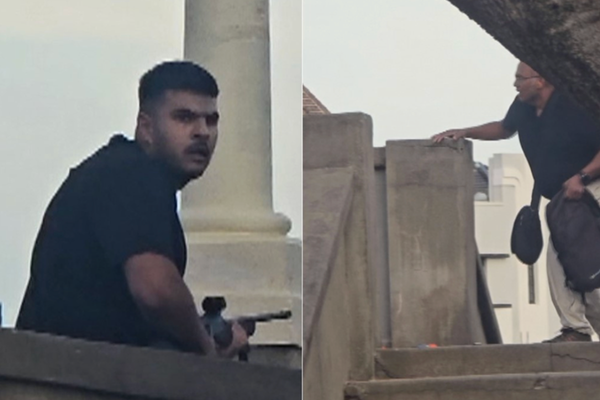
It’s not in their heads. Not any more. It was in the bar rooms and front rooms of Cork and Clontarf, Dublin and Dundalk. It was in the lanes and boulevards of Paris, where optimism and hope flowed like the waters of the Seine. It was in the stands at the Stade de France, where every tackle brought the house down and the Mexican waves were being rolled out long before the end. And most importantly it was out there on the field, where the 23 men of Ireland strode into the quarter-finals of the World Cup as if it were the most natural instinct in the world.
They came not just to praise the new Ireland, but to bury the old one. An Ireland that always seemed to spasm in games like this. An Ireland that felt the pressure. For all the respectful words lavished on the Scots this week, once the game began it was clear that these two teams were on entirely different wavelengths. As Ireland worked their mesmerising patterns Scotland swarmed and chased and regrouped, unaware that they were already two phases behind the game, that they were facing opponents who were moving through a different gravity, playing to a different tempo. In their heads, they were still fighting. But the contest they were trying to win had already disappeared.
Afterwards, as the old tunes played, Bundee Aki whirled his arms around like a conductor, exhorting more noise from a crowd that had already given plenty. The centurion Peter O’Mahony brought his two children on to the pitch, the elder of whom ran in a couple of late tries against a tired Scottish defence. Meanwhile Jack Conan peeled himself away from the huddle and simply stood in front of the green wall, savouring the moment, desperate to drag it out for as long as he could.
Let’s set aside their talent for a minute. Has an Ireland team ever played with quite this much pleasure? Has an Ireland team ever relished the stage as much as this? Has an Irish team and an Irish public ever felt quite so one and whole?
This was one of those rare occasions where you could feel the memories being imprinted in real time, the giddy glee of thousands of people who know they will never forget this moment as long as they live. The All Blacks can wait. There will be plenty of time in the coming days for angst and analysis. For now it’s simply worth lingering on the sense of awe and amazement that Ireland have generated at this World Cup. Not just Andy Farrell or his players or his staff, but everyone: a tidal wave of sensations and emotions that has so far swallowed everyone and everything in its path.
- Download the Guardian app from the iOS App Store on iPhone or the Google Play store on Android by searching for 'The Guardian'.
- If you already have the Guardian app, make sure you’re on the most recent version.
- In the Guardian app, tap the Menu button at the bottom right, then go to Settings (the gear icon), then Notifications.
- Turn on sport notifications.
There were Irish fans in the museums and the cafes. There were Irish fans out for a run in La Villette and Irish fans at the grave of Oscar Wilde in Père-Lachaise. This week every pub in Paris was an Irish pub. And the real relevance of all this is in the sense of belonging. Fine Ireland sides have travelled to World Cups before, some in hope and others in expectation. But arguably none has ever truly belonged. None has ever looked truly comfortable, as if this stage was their stage. And when they countered the stresses and strains of knockout rugby, it mattered.

It wasn’t a flawless performance, because no team with this many moving parts can ever produce a truly flawless performance. Even in this resounding triumph Farrell will have glimpsed a little headroom, areas to tweak and improve, ways in which the ceiling of this team can be pushed even higher. But in the way they started and finished this game, the way they weathered the occasional squalls of pressure, the way they dismantled the Scottish set piece and forced Finn Russell to play on an ever-narrowing tightrope of disaster, they demonstrated something even more important than pure quality: the assurance to play on their own terms.
In hindsight, the game was cooked from the moment Scotland chose to kick three early penalties to the corner. If it was supposed to signal aggressive intent, what it actually betrayed was Scotland’s lack of confidence in their ability to control and pace the game. Instead they tried to break it open all at once. That opening 12-minute blitz had earned them 78% territory, 68% possession and no points. For Ireland it was a kind of vindication, affirming in their own minds that they could handle whatever Scotland’s greatest rugby generation could throw at them.
Perhaps there should be a slight tinge of regret that one of the world’s most thrilling and inventive rugby nations should be eliminated by a quirk of the draw. But there was precious little sorrow in evidence here, certainly on the Irish side. Just the wide-eyed wonderment of men and women and children trapped in pure bliss, reliving their wildest fantasies over and over again, like a song you just can’t get out of your head.







